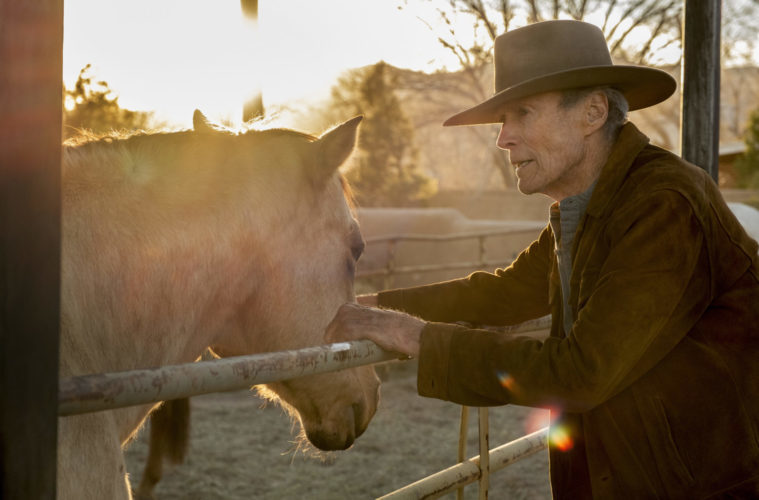Clint Eastwood’s 41st film as director, Cry Macho, is much like the nonagenarian himself: slow-moving, a bit stiff around the joints, but confident and noble-hearted. You can sense an alternative point of view in its relaxed, assured style and in the dignity it affords each character. Based on a 1975 novel by N. Richard Nash, the film reunites Eastwood and the screenwriter of Gran Torino and The Mule, Nick Schenk. Nash wrote the original draft of the script in the 1970s and Robert Mitchum and Arnold Schwarzenegger were each considered for the lead role.
Eastwood plays Mike Milo, an over-the-hill rodeo star whose boss, Howard Polk (Dwight Yoakam), puts him out to pasture in the opening scene. A year later, Polk visits Milo and tasks him with retrieving his 13-year-old son, Rafo (Eduarto Minett). Polk lost custody in a bitter divorce, and hasn’t seen the boy in years. Indebted to Polk for all his years of friendship, Milo agrees to “kidnap” Rafo, and soon tracks him to Mexico City, where he finds him living on the street, betting on cock fights with a rooster named Macho.
Rafo’s mother, Leta (Fernanda Urrejola), turns out to be a wealthy party girl with no interest in raising her son, but with no intention of letting him go, either. She sends her bodyguards to wrest him away from Milo, and the old man finds himself running away from both the henchmen and the Federales.
Cry Macho follows the familiar formula of male bonding with almost slavish devotion, and the film savors those moments in which the elder cowboy dispenses wisdom to the young, hotheaded youth. The film becomes a journey of spiritual proportions that lightly critiques the macho image of Eastwood’s earliest movies for a more nuanced masculinity.
What ultimately rescues the narrative from cliché is the grizzled presence of its star and the strange, elusive, elegiac quality that can only come from a long career behind, and in front of, the camera. Eastwood’s signature scowls and growls have softened to a gravely purr, and it’s good to find him, however briefly, back in the saddle. At 91, he still looks good in a cowboy hat and his punches still sting. When a romantic relationship with a widowed cantina owner nearly 40 years his junior (Natalia Traven) begins to bubble, you almost buy it.
The iconic actor has been in revisionist mode ever since Unforgiven, continually doing “penance” for the high body count that marked his early career. Each new film could plausibly be his last, so it’s good to see the star ease up on the self-critiquing torment of his earlier pictures, electing to end not in a gun battle but in a slow dance. And there are moments that haunt. One shot, for instance, finds Milo settling into his sleeping bag at sunset in the open desert. For a few seconds, his silhouette seems to sink down into the earth itself, as if preparing for eternal rest. It’s in quiet, understated moments such as this that Eastwood the filmmaker gives way to Eastwood the artist, a revelation for which the viewer can feel only gratitude.
Advertising disclosure: We may receive compensation for some of the links in our stories. Thank you for supporting Irvine Weekly and our advertisers.

